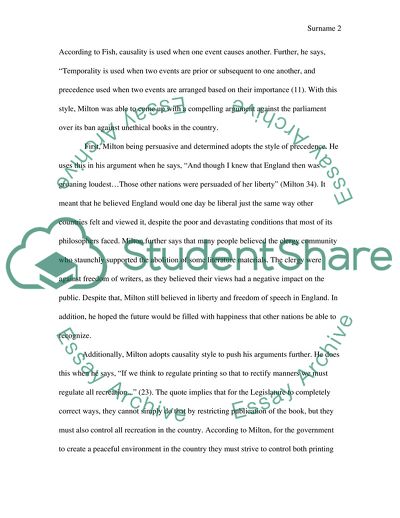Cite this document
(Areopagitica by John Milton Book Report/Review Example | Topics and Well Written Essays - 1500 words, n.d.)
Areopagitica by John Milton Book Report/Review Example | Topics and Well Written Essays - 1500 words. https://studentshare.org/literature/1857958-miltons-appeal-to-pathos-logos-and-ethos
Areopagitica by John Milton Book Report/Review Example | Topics and Well Written Essays - 1500 words. https://studentshare.org/literature/1857958-miltons-appeal-to-pathos-logos-and-ethos
(Areopagitica by John Milton Book Report/Review Example | Topics and Well Written Essays - 1500 Words)
Areopagitica by John Milton Book Report/Review Example | Topics and Well Written Essays - 1500 Words. https://studentshare.org/literature/1857958-miltons-appeal-to-pathos-logos-and-ethos.
Areopagitica by John Milton Book Report/Review Example | Topics and Well Written Essays - 1500 Words. https://studentshare.org/literature/1857958-miltons-appeal-to-pathos-logos-and-ethos.
“Areopagitica by John Milton Book Report/Review Example | Topics and Well Written Essays - 1500 Words”. https://studentshare.org/literature/1857958-miltons-appeal-to-pathos-logos-and-ethos.


